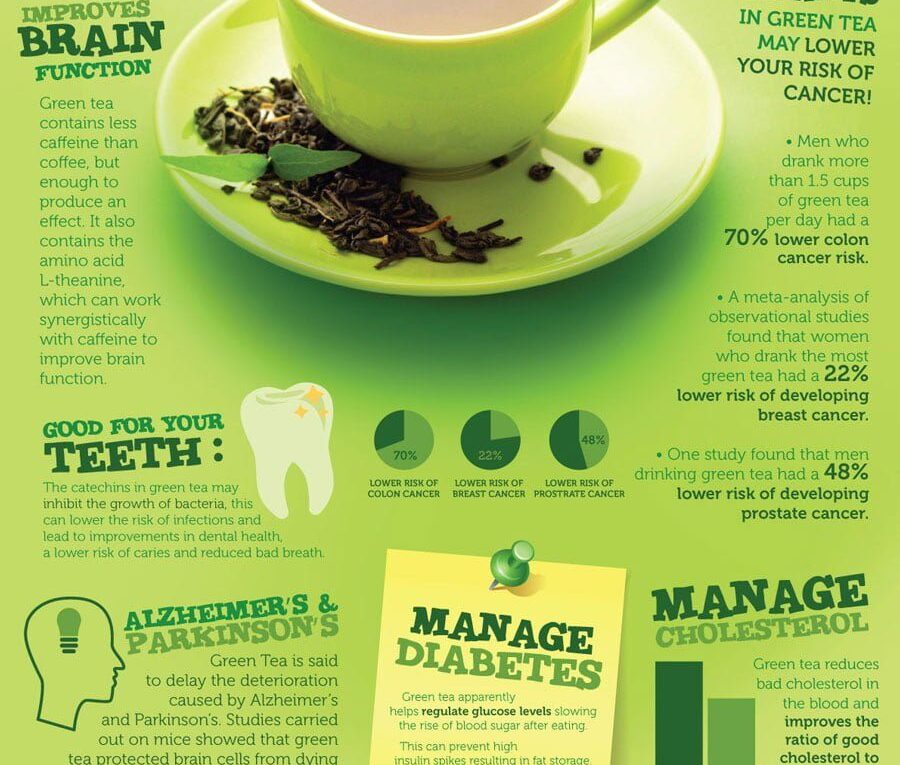The Scientifically Backed Health Benefits of Green Tea: 5 Key Findings
1. Green tea can assist weight loss efforts by aiding with metabolism.
Green tea decreases BMI and Body Weight Based on an analysis of randomized controlled studies, people who regularly consumed green tea experienced a significant reduction in both BMI and body weight, but no improvement was seen regarding waist circumference and green tea consumption.
This analysis included 26 studies with 1,344 participants. Results indicated that body weight and BMI both altered significantly following consumption of green tea at doses less than 800 mg per day over 12 weeks or more.
Green tea extract improves gut health in mice
Green tea has been found to significantly decrease obesity and several inflammatory biomarkers linked with poor health in an animal study, particularly for mice who ate a diet supplemented with 2% green tea extract versus those who did not receive any such addition.
The benefits are believed to come from improved gut health, including increased beneficial microbes in mice’s intestinal tract and less intestinal wall permeability – known as “leaky gut” syndrome in humans.
This research offers concrete evidence of green tea’s ability to promote beneficial gut bacteria growth, leading to numerous obesity risk-reducing benefits.
Green tea supplement EGCG Slows Weight Gain in Mice
According to one study of obese mice, those that consumed green tea supplement EGCG together with a high-fat diet gained weight much slower compared to control groups that did not receive this green tea compound supplement.
Two groups of mice were given a high-fat diet. Mice who received the combination of green tea or EGCG supplementation as part of their high-fat diet gained weight 45% more slowly compared to controls consuming an identical diet without supplementation with either of these compounds, suggesting supplementing with either can help weight loss. These results demonstrate how green tea or EGCG could aid weight management.
Mice fed green tea compound also experienced slower weight gain, and displayed an almost 30% increase in fecal lipids, suggesting that their ability to absorb fat was restricted by EGCG. Thus not only does EGCG reduce absorption rates for fat but it also enhances their use as fuel.
Appetite wasn’t inhibited by green tea; both groups of mice could feed at any time and consumed similar quantities of high-fat food.

